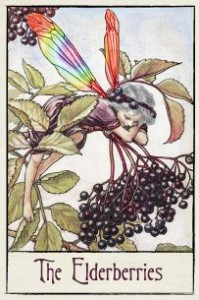Two years ago, the Nova Scotia Rainbow Action Project (NSRAP) held a meeting in which they discussed the needs of seniors in the queer community. One of the projects suggested that day was to create a social organization for elders. That’s how Elderberries was born.

Lynn Murphy is a former librarian and a founding member of Elderberries. The organization’s mandate is to provide a social and educational outlet for queer seniors who are over 50. The group is organized by a managing committee, and meetings are held once a month, usually at Spencer House on Morris St. One of the more popular ideas was to organize all Elderberries events as potlucks, with people bringing all sorts of goodies. “We thought people would enjoy it,” says Murphy. “Amazingly enough, lots of people like to cook.” That’s not surprising, considering this weekend’s discussion will host two students from the Applied Human Nutrition Program at Mount Saint Vincent. The students will discuss healthy cooking practices.
The group has hosted all sorts of discussions and round tables on a variety of topics, from diversity in healthcare to dealing with wills and estates. They also have occasional outings, including visits to art galleries and outdoor picnics. During Pride Week, the group created small pennants that they sold during the festivities. They also were invited to speak about queer history as part of a series of lectures presented by the Halifax Regional Library. “I talked about how you [may] have LGBTQ history in your basement,” enthuses Murphy. “These things are so interesting for the future understanding.” Lynn also notes that many of the members have made themselves available to academics and researchers looking for information about Halifax’s queer history.
As for the social aspect of the group, Murphy points out that “the clubs are not where most elders want to go.” Murphy notes that there is a need for the social outlet that clubs offer and that elders often deal with social isolation due to factors including mobility, health issues and decaying social networks. Accessibility is a big issue for many of the participants, including Murphy, who has some mobility issues. “You have to be pushy to say this, but [accessibility] really matters,” she points out. “If you’re going to have an event at a location that has stairs, it’s an inaccessible space.” So it was important to make the events as accessible to as many people as possible. Murphy admits that she wishes the group had the finances for interpreters for individuals who are deaf or hard of hearing, but it’s not always possible. But, she points out, they are working on making the group viable for as many people as possible.
In the meantime, Murphy and the rest of the Elderberries will be meeting this Sunday. Although this weekend’s session is about healthy food, Murphy admits that one of the best parts of the meetings are the sweets that are passed around at the potluck. “I have a sweet tooth,” she says.
For more information on Elderberries, contact nselderberries@gmail.com or check out their Facebook page.

 Why you can trust Xtra
Why you can trust Xtra


